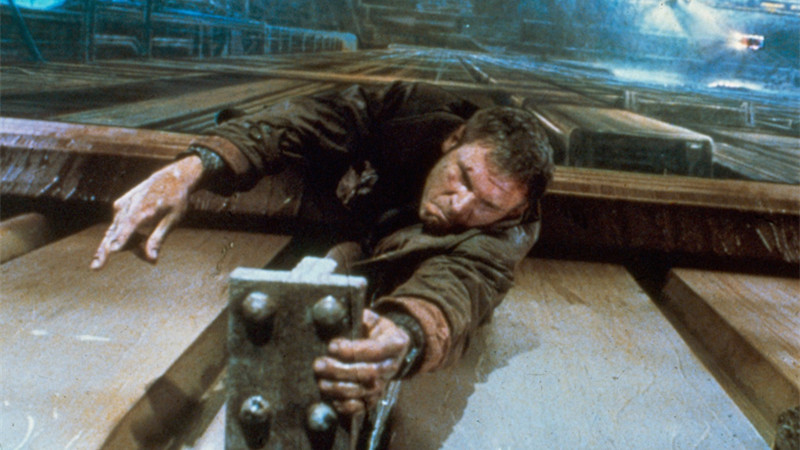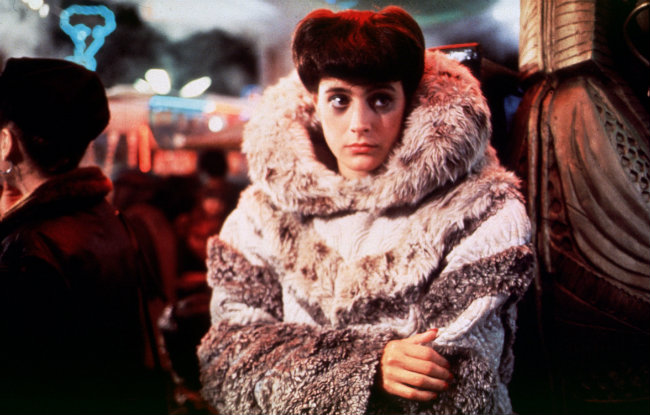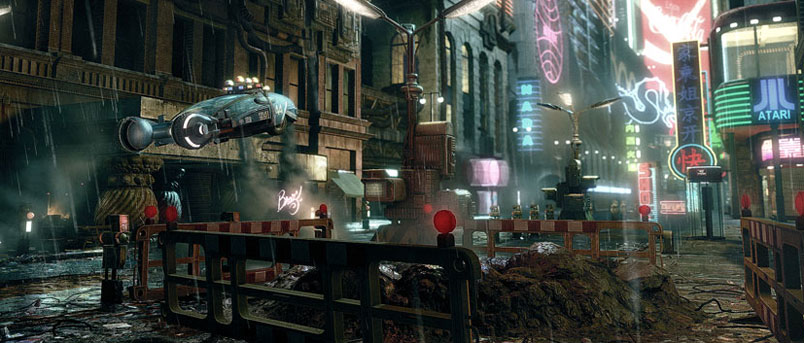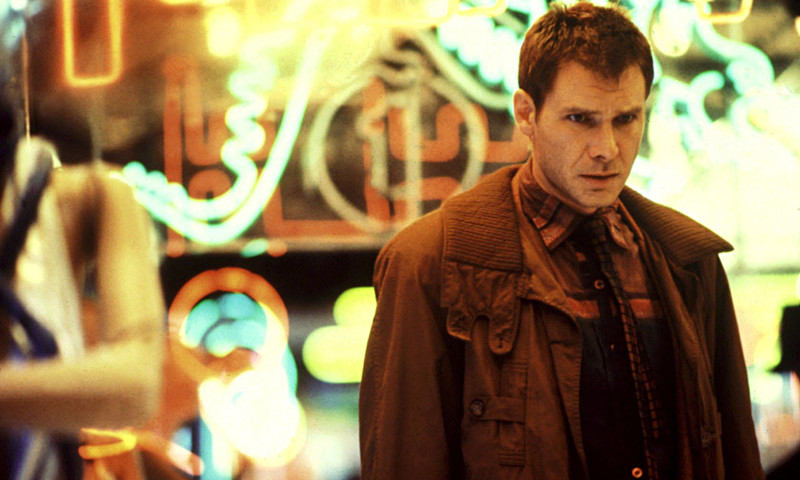
Imagine that you’re an expert in world affairs. For decades, you’ve used the cold logic of science to grasp the forces of the world. You keep a very close eye on the zeitgeist of our world. Unlike others who bury their heads in the sand, you can see the signs. If your eyes are clear enough, you might see them coming. In this way, you might even be able to prepare yourself before they strike, before the bastards come and take everything away….
And then something else happens. Something you never saw coming. Your world has changed. Boom! Just like that. Nothing will ever be the same again. You were all wrong; you were looking the wrong way. But you think about this for awhile and then you realize that the future has too many possibilities and no matter how deep you look, you won’t be able to comprehend all the forces at work, all these roads to cross, all these signs to see.
Before you know it, you’re walking down one road thinking you’re safe, and then suddenly you’re blindsided by a huge truck that seemingly came out of nowhere. It’s true that you could have seen it if you looked the other way, but when there’s so many places to look, how do you know where the danger really is?
It’s not futile to try to make predictions about the future, as there are certain algorithms that can accurately predict outcomes in certain situations. But one can never be *too* sure. If the madness of 2016 proved anything, it’s that the people, who are supposed to know what’s going on, were blindsided as well. All the experts deduced that a good old-fashioned establishment candidate would become the eventual president of the United States.
Instead, the election process that was supposed to safeguard the White House from a radical candidate appointed a hugely controversial candidate that may very well endanger the original globalization project shared by many from the establishment. That America could become a victim of populism, just like Europe, seemed laughable. The eventual results are yet to be seen, but it proves once again that even those who are supposed to see the patterns of history can easily lose sight of the reality of the modern world.
So goes history. There are too many variables, too many building blocks unaccounted for. History is built upon the scientific discoveries of man, on the hopeless dreams of our leaders, on the faith of bankers, on the actions of desperate men, on imaginary deities, and so on. This doesn’t mean pondering about the future is futile. Naturally, we must base our predictions and expectations on logic and scientific inquiry, but the human animal often forgets how easy it is for him to fall into a dreamlike world, replacing reality with utopian wish fulfillment.
Which brings us to the science fiction masterpiece that is “Blade Runner, a film may come very close to portraying the world in which we are going to be living. Perhaps not in its appearance, but in its spirit, humanity is at stake if we don’t pay close attention to the dangerous signs around us. In this list, we are going to take a look at all the reasons why “Blade Runner” is and will remain such a relevant film, especially in its poignant portrait of the human race.
Unlike the soothing escapades of “Star Command”, the characters of “Blade Runner” do not live in a world where we are unified for a common humanistic goal. Instead, we have continued to exploit our resources and technology, which has had disastrous consequences on our environment. Most tragically, perhaps, is that even after all those years, even after all that we know, we have yet to appreciate the intricate complexity of the human condition. This is most evident in the apathetic ”retirement” of the ever-human replicants.
As our extremely flawed hero states: ”Replicants are like any other machine. They’re either a benefit or a hazard…” In the end, it was such a machine, something ”more human than human” as the corporate slogan of Tyrell states, that would teach him the true value of life. If only our future androids could do the same for us, there might be still be hope for us after all.
7. The primacy of the human animal and the mass extinction of other animals

In Philip K. Dick’s novel “Do Androids Dream of Electric Sheep?”, which was the inspiration for “Blade Runner”, nuclear warfare has caused the extinction of most of its animal species. Animals that did not perish from radiation poisoning have become status symbols, not just in terms of wealth, but as a signal that its caretaker is filled with empathy.
In this post-apocalyptic world, empathy has become a precious commodity. It’s in such short supply that humans, under the guidance of a modern technology-based religion called Mercerism, have created a virtual reality machine called ”empathy boxes”. This machine causes them to experience a fictional narrative where they experience the suffering of a martyr. In the old days, people went to church and could only imagine the suffering of their savior. Now, they can experience his pain and therefore feel a greater connection.
This is all well and good, but it’s naturally far too late, as the damage has already been done. In “Blade Runner”, the subplot of Rick Deckard desiring a real sheep instead of an electric sheep has been omitted, but several references are made about the rarity of animal life. ”Must be expensive,” Deckard notes about an artificial owl flying past him, a nice reference to the novel as the owl was the first animal to be wiped away in the novel after the fallout of nuclear war.
Right now, many species in the cold Arctic as well as in sunny Africa have become endangered due to human interference. Many of our favorite Disney characters, which we used to watch as kids, have become a rarity on this planet.
We can mourn this, as we should, but it has always been like that. Our dominion on this planet has caused disastrous effects on its ecosystem and thus many beautiful animal species, whether through ignorance or mere indifference, were wiped away. This is simply an inevitable consequence of our reign on this planet; we demand more and more room, and thus it’s only logical that many animals will eventually have nowhere to go.
Much of it can be blamed on our callous disregard for our fellow mammals. In the past, theists used the word of god to justify the subjugation of the animal kingdom. Many critics of religion cite its combativeness against scientific inquiry, but many forget that if it were not for theistic principles, the human race would never be as powerful as it is now. We would never have reached the scientific revolution if God didn’t convince our ancestors of their superiority. It was biblical revelations that made the agricultural revolution as powerful as it was.
But that was only a small step; the revolutions that followed, the industrial and (most of all) the scientific only increased our dominance until we didn’t need God telling us that we are superior. We could just tell this to ourselves without any shame or fear of blasphemy. But the price that the non-human animal kingdom had to pay for this is more often than not mentioned by the proud human.
Even though there’s an increasing awareness of animal rights, the future still seems bleak or rather nonexistent for various species of animals, whether they are roaming the land or swimming the oceans. The film may have deleted the animal subject, but its passing mention, as well the seemingly visual absence of many animals, gives the viewer enough to go by. It makes them wonder about our destructive presence in this world, the unforgivable price that needed to be paid just so we could be here now.
6. The future is a polluted one

The world of “Blade Runner” is an industrial wonderland. After the film’s opening credits, we see an eye staring at the splendor of the modern world; this is what it all came down to.
Once again, the film makes critiquing notions, without bluntly stating it, about the effects of our supremacy on this planet. While the past was filled with famine, now much of the human race lives in relative comfort with an excessive choice of produce to munch on as they are skimming this article. People go to work in their high-powered automobiles with a gluttonous engine. If you are rich enough, you can eat a nice juicy steak every night of the week.
All of this luxury wouldn’t have been as dangerous were it not for the amount of people on this planet. Most people of the human race are also not willing to compromise on their luxury, and our corporations have no intention of slowing down. There’s no reason for them to slow down – when there’s such popular demand, they will supply the goods.
In many countries around the world, our excessive exploitation of Earth’s resources has induced immense pollution on its populace. People go to work covering their mouths from the smog-infested air. Water has become tainted and if consumed, could cause serious health issues.
In Los Angeles, the setting of “Blade Runner”, the Hollywood sign stood for all to see; now it’s gone, faded away by our excesses. However, that’s our world right now. The world of “Blade Runner” takes it a step further.
In the film, LA is completely shrouded in darkness; the sun is nowhere to be seen. The once thriving city, the place where dreams came true, is gone. It never stops being foggy and it never stops raining in the once sunny streets. Where it was once inhabited by the most desirable people, now they have gone to off-world colonies for a better life.
The colonization of other planets is a concept taken seriously by noted scientists. Looking around, they have little faith in the idea that humans will pull down resources and live responsibly. They suspect, as it seems logical, that the immense power we wield will eventually be our undoing.
Most of these industrial palaces are shipped to the poorer parts of the planet, and the poor will always suffer the most. This is the awful truth. They will be the ones, as was always destined, to live and die in the filth of others. Unless human beings take drastic steps to pull down its resources, the dark world of “Blade Runner” doesn’t seem so far-fetched at all.
5. The corporate dominion of the world

Like the Vatican, giant corporations could have never flourished without the help of true believers. Instead of the doctrine of Christ, the free-market doctrine was peddled as the ultimate solution to the seemingly permanent ideological combat of man. Sadly, as is often the case, it was still a philosophy that is based less on logic than on the dreams of man. Since the 1980s, corporations have received less and less government oversight, and its effect means that many corporations have become the most powerful entities of the world.
“Blade Runner” delves into the omnipotent power of corporations. In the past, corporations have funded studies to further the colonization of the planet, but now, they have gone to the level of gods; they can create life, even superior life. Sadly, corporations can never be counted on for their diligent humanity because corporations transcend morality.
The life they have created, life that like most animals have complex emotions, are used for hard labor. They are given fake memories and a limited lifespan and like cattle, they live their horrible lives until they stop being useful. When they try to escape their chains, Blade Runners are hired to hunt them down and ”retire” them.
In the present, corporations have funded anti-global warming propaganda and political campaigns to continue their reign. They have also amassed patents for human genes and though the scientists they hire are genuinely interested in understanding the human condition or the world around us, there’s no doubt that major discoveries will be exploited for corporate gain.
Corporations received personhood rights, but have more power or rights than man itself. They supply the tools that keep us entertained and once they start, once profit can be made, there’s often no stopping them. They will steamroll everything in their path, be it land or animal or even humans themselves. Feeling powerless to stop them, we let them be and thank them whenever they supply the goods. This is already our brave new world; though stumbling here and there, they’ve already won. And deep down, we already know this.